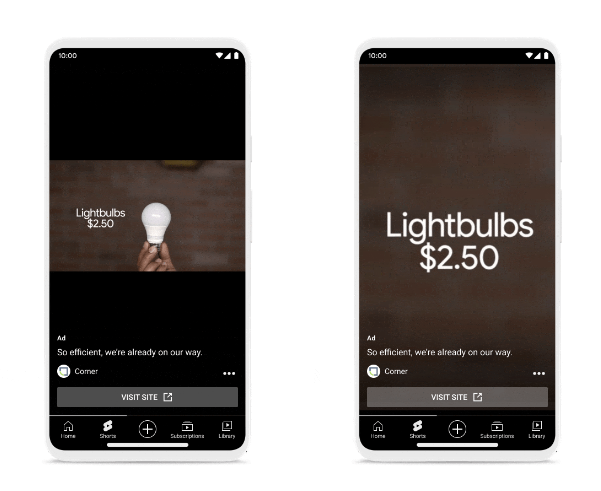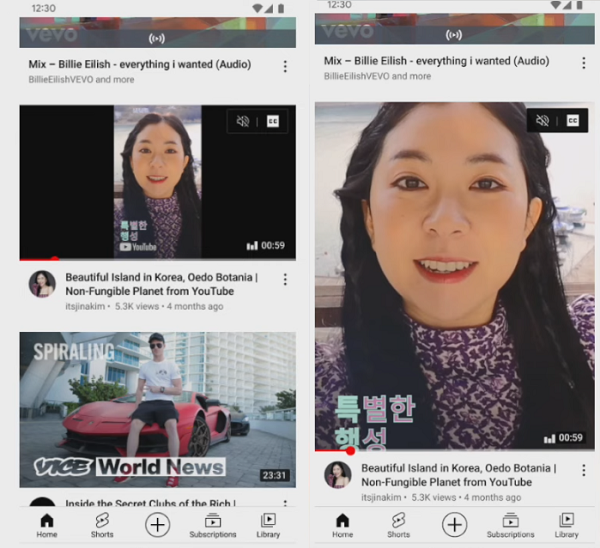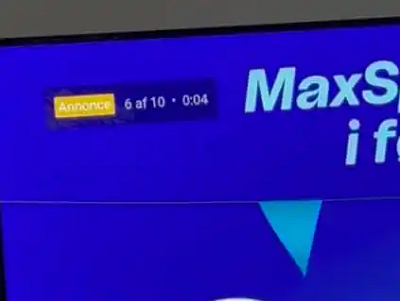YouTube’s looking to help advertisers align with evolving video consumption trends by testing out a new process that automatically reformats landscape video ads into square or vertical playback, relative to how each user is consuming content.

As you can see in this example, the process will match up the presentation display based on how each person is engaging with content, creating a more organic, streamlined experience.
As explained by YouTube:
“The machine learning model detects important elements in the landscape ad – such as faces, key objects, logos, text and motion – and breaks the video into distinct “scenes.” This ensures that important elements show up properly – centered, for example – in the reformatted video.”
That could make it easier for marketers to align with usage trends, and in particular, YouTube Shorts, which has seen a big jump in usage this year.
“We found that when advertisers added a vertical creative asset to their Video action campaigns, they delivered 10-20% more conversions per dollar on YouTube Shorts than campaigns that used landscape assets alone.”
Short-form video is the trend of the moment, and this could make it much easier for brands to align with that shift, with minimal editing effort. YouTube says that option is currently available for App campaigns, and will be coming soon to Video action and Performance Max campaigns.
In addition to this, YouTube’s also adding some new, customizable vertical video ad templates in the video creation tool in Google Ads.
The simplified templates provide another way to create YouTube ads based on engaging presentation styles.
“These new templates follow creative best practices for YouTube and are built with specific considerations for a vertical viewing environment, with pacing, music tracks and transitions designed to make an impact.”
YouTube’s also added some additional, auto-generated ad templates, which provide a way to create vertical videos based on text and image inputs.
And even further aligning with the vertical video shift, YouTube is also updating the presentation style of vertical video thumbnails in the app, to make vertical clips look better in-stream.

As per YouTube:
“While vVODS represent only a small percentage of videos, up until now, they’ve created an inconsistent viewing experience for users browsing on home, as black void spaces appear on both sides of the video, which, in turn, makes it more difficult for viewers to evaluate and engage with the content they’re interested in.”
As you can see in the right-hand side image above, YouTube will now present vertical clips without the black bars, creating more consistency in-stream.
That could also mean some changes to your thumbnail presentation:
“While we’ve previously encouraged creators to optimize for 16:9 thumbnails in videos, in the new more immersive experience, thumbnails for vVODS will now be auto-scaled to the 4:5 aspect ratio, resulting in some 16:9 thumbnails to appear cropped.”
Worth noting, while YouTube also says that, in early experiments, creators have seen ‘a modest improvement’ to views and watch time as a result of this formatting change.
Better presentation options, aligned with emerging trends. While at the same time, YouTube’s also experimenting with ways to push even more ads into clips.
A lot more – in fact, some users have reported seeing up to 10 unskippable ads at a time in individual clips.

YouTube has said that these ‘bumper’ ads are only 6-seconds long, at max, so the imposition shouldn’t be significant. But still, I would question the effectiveness of ads that are jammed into these clusters, which users are likely tuning out very quickly.
It’s interesting to see how the TikTok effect has changed video consumption behavior more broadly, and how Meta and YouTube are both working to keep up.
Shorts has become a big winner for YouTube, and as such, it makes sense for it to build upon its Shorts presentation elements, but it’ll be interesting to see how that gels with user behavior – and how these new ad presentation options perform in the YouTube environment.



